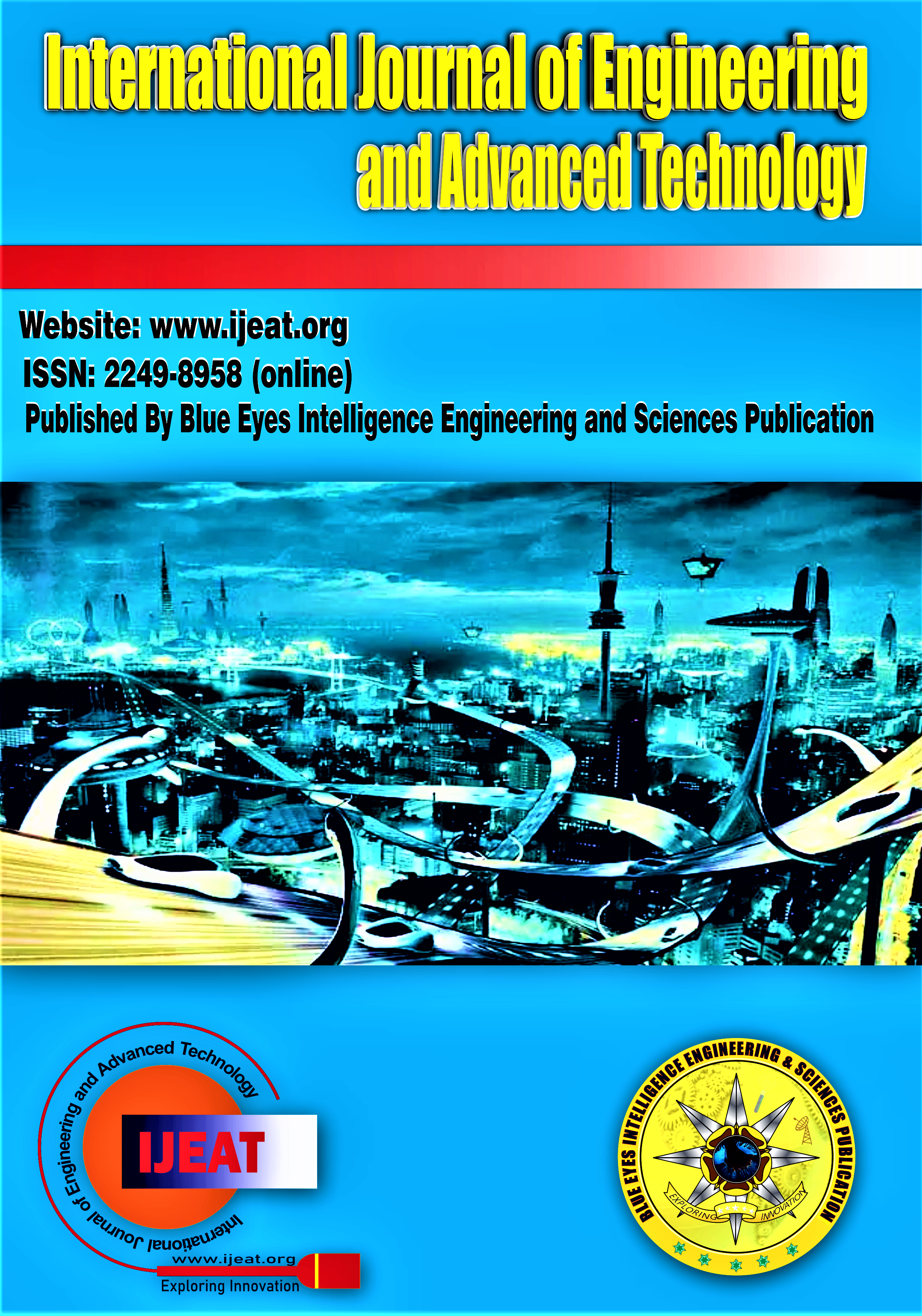Analyzing AWS Edge Computing Solutions to Enhance IoT Deployments
Main Article Content
Abstract
This paper explores integrating Internet of Things (IoT) deployments with edge computing, focusing on Amazon Web Services (AWS) as a key facilitator. It provides an analysis of AWS IoT services and their integration with edge computing technologies, addressing challenges, and practical applications across industries, and outlining future research directions. IoT and edge computing revolutionize data processing by enabling real-time analytics, reduced latency, and enhanced operational efficiency. IoT involves interconnected devices autonomously gathering and exchanging data, while edge computing processes data near its source, decentralizing data processing and minimizing data transmission to centralized servers. AWS facilitates scalable and secure infrastructures for IoT and edge computing. AWS IoT Core manages IoT device connectivity and data ingestion, AWS Greengrass extends AWS capabilities to edge devices, and AWS Lambda enables serverless computing, empowering efficient deployment and scaling of IoT applications. Centralized cloud architectures often struggle with vast IoT data. Edge computing decentralizes data processing, reducing latency, enhancing real-time capabilities, and minimizing bandwidth. AWS ensures secure device connectivity through AWS IoT Core, supporting various protocols for seamless integration with IoT devices. AWS Greengrass allows local data processing and machine learning at the edge, vital for environments with limited connectivity or stringent latency requirements. AWS Lambda supports serverless computing, enabling scalable, event-driven architectures without server management, crucial for fluctuating IoT workloads. In conclusion, AWS advances IoT capabilities at the edge, with practical implementations across industries. As IoT evolves, AWS remains pivotal, innovating to meet dynamic IoT deployment demands.
Downloads
Article Details
Section

This work is licensed under a Creative Commons Attribution-NonCommercial-NoDerivatives 4.0 International License.
How to Cite
References
Mukherjee, M., Matam, R., & Shu, L. (2018). IoT for Smart Grids: Design Challenges and Paradigms. IEEE Access, 6, 2856-2863.
Satyanarayanan, M. (2017). The Emergence of Edge Computing. Computer, 50(1), 30-39. https://doi.org/10.1109/MC.2017.9
Amazon Web Services. (n.d.). AWS IoT Core Documentation. Accessed June 25, 2024, from https://aws.amazon.com/iot-core/
Li, D., Xu, L. D., & Zhao, S. (2018). Secured Edge Computing-Based Communication Architecture for IoT. IEEE Internet of Things Journal, 5(2), 691-699.
Amazon Web Services, AWS Greengrass Documentation. Accessed June 25, 2024 from https://aws.amazon.com/greengrass/
Gia, T. N., Jiang, M., Rahmani, A. M., et al. (2018). Fog Computing in Healthcare Internet of Things: A Case Study on ECG Feature Extraction. IEEE Access, 6, 33727-33740.
Amazon Web Services, AWS IoT Security Best Practices. Accessed June 25, 2024, from https://docs.aws.amazon.com/iot/latest/developerguide/security-best-practices.html
Lee, J., Bagheri, B., & Kao, H. A. (2015). A Cyber-Physical Systems architecture for Industry 4.0-based manufacturing systems. Manufacturing Letters, 3, 18-23. doi:10.1016/j.mfglet.2014.12.001 https://doi.org/10.1016/j.mfglet.2014.12.001
Bi, Z., Da Xu, L., & Wang, C. (2014). Internet of Things for Enterprise Systems of Modern Manufacturing. IEEE Transactions on Industrial Informatics, 10(2), 1537-1546. doi:10.1109/TII.2014.2300338 https://doi.org/10.1109/TII.2014.2300338
Istepanian, R. S. H., & Philip, N. Y. (2009). Emerging Mobile Healthcare Systems: Concepts, Products, and Applications. International Journal of Electronic Healthcare, 5(1), 1-17. doi:10.1504/IJEH.2009.022771
Raghupathi, W., & Raghupathi, V. (2014). Big data analytics in healthcare: promise and potential. Health Information Science and Systems, 2(1), 3. doi:10.1186/2047-2501-2-3 https://doi.org/10.1186/2047-2501-2-3
Lee, J., Lapira, E., Bagheri, B., & Kao, H. A. (2013). Recent advances and trends in predictive manufacturing systems in big data environments. Manufacturing Letters, 1(1), 38-41. doi:10.1016/j.mfglet.2013.09.005 https://doi.org/10.1016/j.mfglet.2013.09.005
Mack, D., & Szulczyk, K. R. (2016). Enhancing Fleet Management Using Internet of Things. Procedia Engineering, 178, 271-278. doi:10.1016/j.proeng.2017.01.111 https://doi.org/10.1016/j.proeng.2017.01.111
Shi, W., Cao, J., Zhang, Q., Li, Y., & Xu, L. (2016). Edge Computing: Vision and Challenges. IEEE Internet of Things Journal, 3(5), 637-646. doi:10.1109/JIOT.2016.2579198 https://doi.org/10.1109/JIOT.2016.2579198
Hu, Y. C., Patel, M., Sabella, D., Sprecher, N., & Young, V. (2015). Mobile Edge Computing—A Key Technology Towards 5G. ETSI White Paper No. 11, 1-16.
Amazon Web Services, AWS Documentation, Accessed June 25, 2024 from https://aws.amazon.com/solutions/guidance/edge-computing-in-retail-on-aws/
Amazon Web Services, AWS Documentation, Accessed June 25, 2024 from https://docs.aws.amazon.com/prescriptive-guidance/latest/mes-on-aws/edge.html.
Chandramohan, S., & Senthilkumaran, M. (2019). A Self Configurable Edge Computing for Industrial IoT. In International Journal of Engineering and Advanced Technology (Vol. 9, Issue 2, pp. 2890–2894). https://doi.org/10.35940/ijeat.b3868.129219
Pydi, H., Reddy, A. V. D., Rupesh, C. J., Chandana, P., & Bharath, C. (2020). Sdn in Edge Computing Based on Penguin Foraging Behaviour. In International Journal of Innovative Technology and Exploring Engineering (Vol. 9, Issue 8, pp. 34–37). https://doi.org/10.35940/ijitee.h6113.069820
Singh, K., & Sharma, Dr. Y. K. (2019). Critical Assessment of Phases of Partitioning and Offloading Tasks in Edge Computing. In International Journal of Recent Technology and Engineering (IJRTE) (Vol. 8, Issue 4, pp. 7599–7604). https://doi.org/10.35940/ijrte.d5345.118419
Goyal, Ms. P., & Deora, Dr. S. S. (2022). Reliability of Trust Management Systems in Cloud Computing. In Indian Journal of Cryptography and Network Security (Vol. 2, Issue 1, pp. 1–5). https://doi.org/10.54105/ijcns.c1417.051322
Radhamani, V., & Dalin, G. (2019). Significance of Artificial Intelligence and Machine Learning Techniques in Smart Cloud Computing: A Review. In International Journal of Soft Computing and Engineering (Vol. 9, Issue 3, pp. 1–7). https://doi.org/10.35940/ijsce.c3265.099319





